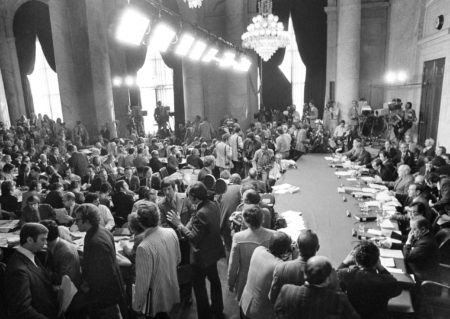After a month full of Silicon Valley and sci-fi, I moved on to a much wider variety of topics. On this month’s reading list, I’ve got everything from sci-fi to food politics to regular politics to TV shows.
Some thoughts to follow, and I hope everyone enjoys!
Philip K. Dick – Flow My Tears, The Policeman Said
I’m guessing most readers have already heard of Philip K. Dick. I’m also guessing that most readers already know more or less what happens in a Dick novel. It carries some dystopian features. People use drugs. The government runs things in an authoritarian manner. And so on.
In this one, a genetically engineered main character goes to the hospital for an emergency operation. When he wakes up, no one knows him. Since he’s a famous television star, this is quite surprising! The rest of the novel follows his attempts to figure out what happened.
If you like Philip K. Dick, you’ll probably enjoy this one. If you don’t like him, you won’t.
Garrett M. Graff – Watergate
Did the world need another book on Watergate? Graff thinks so. And as he points out, the Watergate literature is a bit of a mess. Graff comes along to try to tidy things up. He tries to place it all into a single narrative, stringing together the most likely version of events into a coherent whole.
I think he mostly succeeds at doing so. Graff never quite explains why a petty burglary turned into a burning scandal that took down the Nixon presidency and forever changed the relationship between the President, the press, and public confidence. But he makes excellent use of old and new evidence to show how it happened. Graff captures the deeply paranoid and conspiratorial nature of Nixon. And how Nixon surrounded himself with shady characters who might do things like conduct a petty burglary before an election that Nixon was practically guaranteed to win.
Finally, I can’t let such a book pass without noting the similarities between Nixon and Donald Trump. Both use ‘fixers,’ petty schemes, and so on. Perhaps Nixon had a sense of shame we find lacking in Trump. But Graff no doubt had the similarities in mind as he worked on this text.
Marion Nestle – What to Eat
My partner and I recently read this book together in a reading group! And while some parts of the book are a little dated (it was published in 2008), much of the advice remains timeless and relevant.
In short, Nestle advises readers on ‘what to eat’! She goes through many of the problems with processed food, too much sugar and salt, and so on. She organizes the book according to the standard layout of a large grocery store. Nestle leads the readers through each section of the store and offers advice on how to navigate the store and all the various issues with food.
As an intro to nutrition, it’s an excellent choice.
Tara Westover – Educated
So, this memoir got quite a bit of buzz recently. Especially within education circles.
It’s not hard to see why. Westover grew up way out in the middle of nowhere in a radical Mormon family. This understandably warped how she experienced the world around her. She had little experience with formal education. She grew up around anti-government conspiracy theories. And she was raised with the expectation that she’d navigate a harshly patriarchal world for the rest of her life.
As it turns out, mental illness stood at the root cause of this life. And – as I think Westover herself would explain it – it’s really more a story about mental illness and its impact than anything specifically about religion.
But, all this aside, Westover tells the story of how she escaped from this background and turned to academia. And she presents her complicated and ongoing relationship with her own childhood setting. I think by the end of the story she had come to some sort of peace with it all – some kind of appreciation for how that society had enabled her to become a unique sort of person.
Bonus TV Shows: The Wonder Years and The Dropout
So, I’ve been watching some TV lately, courtesy of Hulu. As some of you might have seen in previous lists.
Lately, I’ve been watching the reboot version of The Wonder Years and the TV version of the Elizabeth Holmes and Theranos story – The Dropout.
As far as The Wonder Years goes, I can’t recommend it highly enough. At least Season 1. It’s a short, punchy, scripted sitcom of the type you might find in the 1980s. In other words, it does a great job recapturing the original version of the show. And it doesn’t merely replicate the earlier show. Rather, it adds something new. Different characters, different situations, and a different way of looking at the late 1960s and early 1970s.
As for The Dropout, it does the job well enough. I don’t think it adds much above and beyond Carreyrou’s book. But it’s an entertaining enough show. And since it’s a miniseries, it doesn’t make the key mistake of going on for too long. If you’ve got the spare time, it’s worth a watch.
